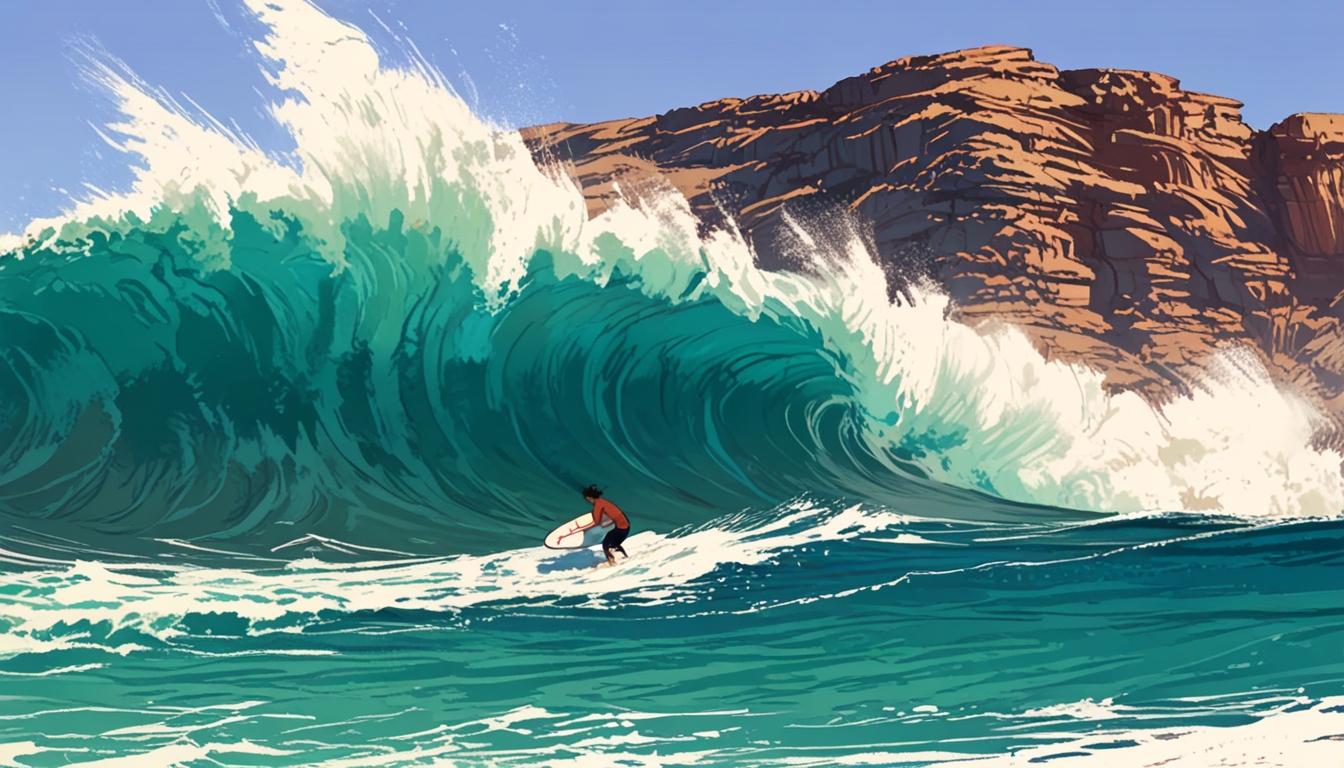Nicolas Cage takes centre stage in the new thriller The Surfer, a wild and rocky B-movie set against the backdrop of Western Australia's rugged coastline. Directed by Lorcan Finnegan, the film follows a lone surfer’s struggle to carve out a new life amidst local hostility and personal unraveling.
In The Surfer, Cage plays an unnamed loner with a deep desire to ride the big waves and settle back into his old family home on the cliffside. However, from the very start, he faces relentless bullying from local toughs, which drives his fragile psyche to the brink. As the plot unfolds, the protagonist's situation deteriorates dramatically—he resorts to drinking from puddles and foraging through bins, even suffering a rat bite and a bird attack. The film explores his descent into desperation, painting him both as a figure of ridicule and, paradoxically, as a tragic anti-hero.
The script accommodates Cage’s unmistakable screen persona by recognising his American identity, despite the predominantly local Australian setting. A passing photographer in the film comments, "I thought you were American," to which Cage’s character explains his years spent in California before returning home. This narrative device allows Cage’s distinctive presence to remain authentic without forcing an accent or background that would feel inconsistent.
Known for his energetic and sometimes unpredictable performances, Cage here channels his well-honed ability to depict characters caught in emotional chaos. The Surfer sees him embody a figure marked by bluster rather than conventional strength, his turmoil fleeing from authority and instead amplifying disarray. This aligns with Cage's trademark roles in films like Raising Arizona, Wild at Heart, Joe, Mandy, and Bad Lieutenant, where his characters often personify tragicomic conflict.
Cage himself has described his approach to acting less as traditional impersonation and more as a form of performance art. Speaking to the idea of acting versus performing, he has observed that performing allows for a more honest and self-directed expression. He likens film acting to painting, suggesting that while most prefer representational and naturalistic work, there is also room for more abstract, surreal interpretations. Through this lens, The Surfer becomes one such creation—a surreal portrait where Cage reflects a distorted, funhouse mirror image of himself.
The film’s thematic core riffs on a metaphor offered by Cage's character early on: “You can’t stop a wave, it’s pure energy.” This encapsulates the tension between the protagonist—the irresistible force—and the local bullies—the immovable object. It suggests an elemental struggle not just for physical survival but for identity and agency.
The Surfer arrives in cinemas on 9 May, promising audiences an intense, idiosyncratic display from one of cinema's most distinctive actors. The film’s release marks another chapter in Nicolas Cage’s career, showcasing his unique blend of emotional intensity and performative flair within a tightly contained thriller set on the vibrant, rugged Australian coast.
Source: Noah Wire Services
